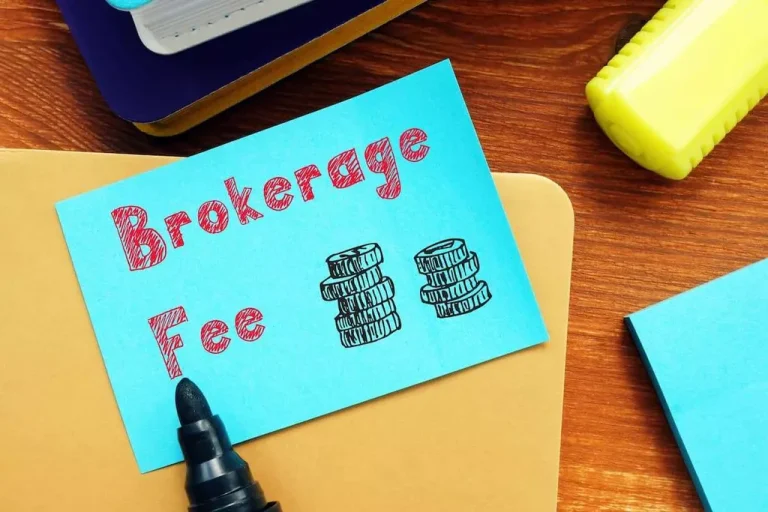Content
AML procedures enhance the reliability and security of transactions on crypto platforms, underscoring their critical importance. In general, AML compliance requires crypto companies and other financial institutions to verify customers’ identities through processes known as Know Your Customer (KYC). More importantly, AML regulations mean that all regulated entities must monitor transactions for suspicious activities, flag AML risks, and report suspicious activities to relative authorities. To combat such crypto exchange kyc requirements criminal activities, legislative changes needed to happen, and they did.
Rising Crypto Fraud: Alarming Statistics and Global Crackdowns

The consequences of not adhering to Anti-Money Laundering (AML) regulations in the cryptocurrency Smart contract sector can be severe and far-reaching. This section will explore the penalties for non-compliance and underscore the importance of adhering to regulations. As the regulatory landscape continues to evolve, centralized exchanges need to stay informed about regulatory changes specific to their jurisdiction and adjust their AML practices accordingly. – This allows for real-time monitoring without requiring information from multiple institutions.
Reasons Why Crypto Transactions Have a Higher Risk of Money Laundering
As with traditional cryptocurrencies, ensuring adherence to AML laws for crypto exchanges and other virtual platforms will be crucial. Additionally, Persona Verification facilitates https://www.xcritical.com/ screening across 100+ global sanction and warning lists, as well as 5000+ Politically Exposed Person (PEP) lists. This comprehensive screening helps ensure regulatory compliance and prevent money laundering activities in the cryptocurrency space. Finally, the use of decentralized exchanges (DEXs), which operate without a central authority or intermediary, can pose challenges for AML compliance efforts in cryptocurrencies.
Why KYC Is Essential to Cryptocurrency’s Longevity
Cryptocurrency market has developed significantly and gained millions of users globally in a short span of time. Moreover, as it turned out, the increasing popularity of the crypto exchanges stirred the need to draft certain Identity verification checks (IDV) in the industry. IDV checks include Know your customer(KYC) and Anti-money laundering(AML) verification for secure crypto exchange business.
Don’t risk your business. Meet Sanction Scanner Today!
Your personal information is safeguarded, but choosing trustworthy platforms is essential. Market fluctuations will persist, but the growth of crypto investments and exchanges suggests a lasting trend. In 2019, the SEC, FinCEN, and CFTC labeled crypto exchanges as money service businesses (MSBs), enforcing KYC and AML rules. SSI could help crypto platforms streamline KYC by allowing users to share pre-verified credentials instead of their ID documents when signing up for each platform. This would reduce user burden and the amount of personal data the platform would need to store to help prevent fraud. Plaid Identity Verification (IDV) can confirm customer identities in over 200 countries using authoritative data sources, ID documents, and selfie verifications.

Over the years there have been numerous cases of cryptocurrency platforms disregarding their compliance obligations, which has often caused significant impact on their users and the business itself. One of the major concerns with data security is that sensitive personal information is received, stored, and transferred from user to exchange during the KYC/AML process. Most advanced encryption technologies, secure storage solutions, and regular security audits are often warranted to ensure such precautions are being taken. After discussions about virtual assets, some governments made regulations about virtual assets, while some countries completely banned virtual assets. Nations going to regulate virtual assets could not act fast enough and could not fill the gaps in the regulatory system.
On the other hand, regulatory uncertainty or sudden shifts can erode confidence and even trigger market volatility. Implementing ironclad regulations could lead to the withdrawal of services or market exits, negatively affecting consumers. Striking a balance between fostering innovation and protecting consumers remains a challenge for regulators, emphasising the need for global cooperation and consistent standards. Overall, a well-calibrated regulatory environment contributes to a secure and trustworthy crypto market, supporting responsible investment and safeguarding consumers from potential risks.
However, they do offer a level of privacy that can be strengthened with secure and encrypted channels for sharing sensitive information. KYC can help crypto users maintain control over their privacy while protecting crypto platforms from exploitation by anonymous users. This article defines KYC compliance in the crypto space, addresses common KYC crypto challenges, and explores how Plaid can help crypto companies create robust KYC processes without harming their new-customer onboarding flows. However, crypto transactions cannot be reversed, and they are often significantly larger. These large deposits and the irreversibility of payments make crypto an attractive target, increasing the need for security and fraud prevention. Cryptocurrency exchanges stand to gain a lot from selecting the appropriate KYC service provider as it sometimes makes a difference in the user experience.
This feature adds an extra layer of security and ensures the integrity of the cryptocurrency KYC requirements process (Persona). Understanding these red flags and staying ahead of potential risks is essential for maintaining the integrity of the financial system in the rapidly evolving landscape of cryptocurrencies. Through vigilant identification of AML red flags, compliance professionals can contribute to a safer and more transparent ecosystem for all participants in the cryptocurrency market.
Plus, by engaging in open dialogue with regulators and actively participating in advocacy initiatives, crypto businesses will be better positioned to foster a positive regulatory relationship. Continuous monitoring is the ongoing review of transactions for criminal activity. When suspicious activities are detected, VASPs are obligated to submit Suspicious Activities Reports (SARs) to FinCEN or other relevant law enforcement agencies. Exchange systems have to be configured with real-time transaction monitoring systems that will alert on the basis ofcertain predetermined criteria. These could be unusually large transactions, deviations in activity from the established behavior of a user, or transfers involving high-risk jurisdictions.
- As the cryptocurrency industry is further maturing, so are the technologies and strategies of implementation for KYC/AML.
- Without KYC, though, money launderers could convert tainted funds into NFTs to hide their assets or cover a money trail with multiple transactions.
- In this ultimate guide, we will explore the essential criteria for selecting a Crypto KYC provider, highlight the key features they should possess, and provide insights into crypto fraud trends.
- KYC is a basic expectation that holds financial institutions accountable for conducting due diligence and understanding the nature of their customers.
- After all, AML is a balancing act between empowering individuals to trade freely and enter crypto markets as they please while mitigating the risk of financial crime.
- Financial institutions and crypto marketplaces must report suspected criminal behavior to regulatory authorities.
To avoid unnecessary friction from the end-user’s perspective, crypto players and all VASPs should choose customizable AML tools that can be tailored to user risk profiles and specific use case scenarios. Since such transactions are typically marked by non-face-to-face customer interactions, this also opens doors for anonymous funding opportunities. For example, standard cash funding or third-party funding that doesn’t properly identify the money’s true source. Learn all about crypto compliance, AML regulations, new Travel Rule updates, and what kind of measures are now required for VASPs.
Today, the customer onboarding process is the first step to creating a good customer experience. Therefore, businesses aim for their customers to open accounts quickly, easily, and smoothly. However, companies must protect themselves from risks and fulfill their obligations in the customer onboarding process.
Yet, some would say AML requirements don’t affect crypto exchanges enough, with the need for better prevention and detection methods on the horizon. Often seen as a matter of national (and even international) security, money laundering in cryptocurrency is a risk you can’t ignore. AML in cryptocurrency carries weight, helping to break criminal networks and minimize the impact of illicit transactions on affected economies. This has led to an increasing focus among global regulators on cryptocurrency exchanges and digital assets. Customer Due Diligence or ‘CDD’ is an assessment of the risks presented by a new client or business relationship. Financial service providers make use of background checks, customer surveys, and reviews of client transaction history to assign risk ratings determining how closely an account will be monitored.
View a full breakdown of the exact source or destination of funds in a single click. Decide to investigate a customer or generate a Suspicious Activity Report (SAR) based on detailed risk insights. Place verification checks where and when you need them most for top conversion rates and security, code-free.
The FATF has been at the forefront of setting global standards for AML regulations, including those related to cryptocurrencies. In 2019, FATF updated its guidance and placed stringent AML regulations on virtual asset providers and crypto exchanges, making compliance crucial for these entities to avoid penalties. This move was aimed at ensuring transparency in transactions and preventing the misuse of digital currencies for illicit activities.

